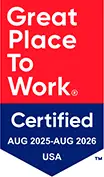News & Regulatory Alerts
Stay current on the critical safety and compliance news that impacts your business.
We protect people and the businesses they run.®
We protect people and the businesses they run.®
Online and mobile technology solutions to help you meet safety and regulatory compliance needs. Drive improved safety metrics and reduce accidents with our award winning software.
View AllIndustries We Serve
Compliance Topics
J. J. Keller protects people and the businesses they run. You can trust our expertise across a wide range of subjects relating to labor, transportation, environmental, and worker safety. Our deep knowledge of federal and state agencies is built on a strong foundation of more than 100 editors and consultants and 70+ years of regulatory compliance experience.
 Women In Trucking Association Names 2023 Top Companies for Women to Work For in Transportation (opens in a new window)
Women In Trucking Association Names 2023 Top Companies for Women to Work For in Transportation (opens in a new window) Learn more about how J. J. Keller & Associates, Inc. is Great Place to Work Certified (opens in a new window)
Learn more about how J. J. Keller & Associates, Inc. is Great Place to Work Certified (opens in a new window) Learn more about why J. J. Keller & Associates, Inc. IS A MOST LOVED WORKPLACE® (opens in a new window)
Learn more about why J. J. Keller & Associates, Inc. IS A MOST LOVED WORKPLACE® (opens in a new window)J. J. Keller protects people and the businesses they run. You can trust our expertise across a wide range of subjects relating to labor, transportation, environmental, and worker safety. Our deep knowledge of federal and state agencies is built on a strong foundation of more than 100 editors and consultants and 70+ years of regulatory compliance experience.
Stay current on the critical safety and compliance news that impacts your business.